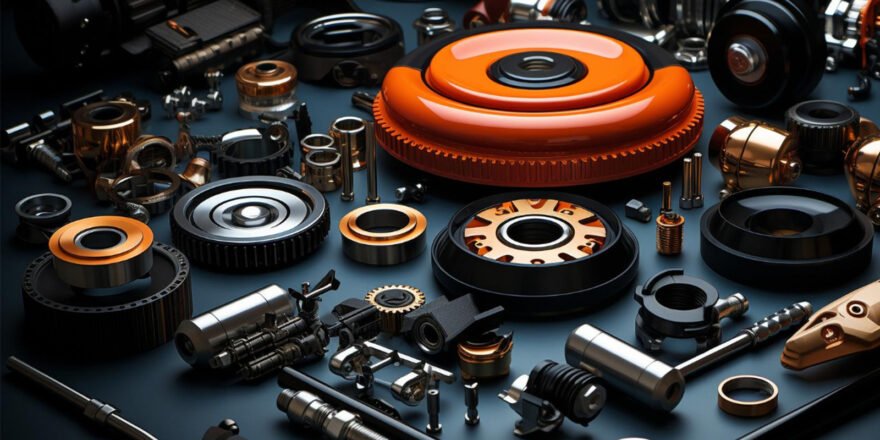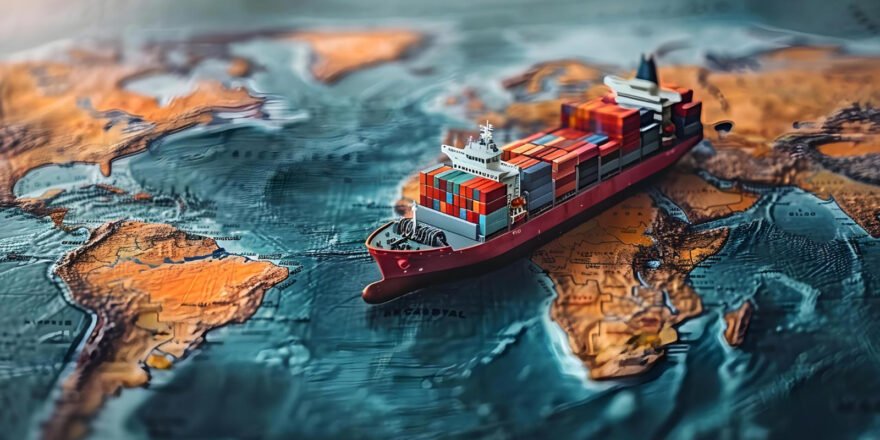Marine spare parts play a crucial role in ensuring the safety, efficiency, and uninterrupted operation of vessels at sea. From engines and navigation systems to pumps and safety gear, these components are essential for maintaining the performance and reliability of marine equipment. A well-managed inventory of quality spare parts helps minimize downtime, supports compliance with international regulations, and reduces the risk of costly repairs during voyages. Understanding their importance is crucial for shipowners, operators, and procurement teams seeking to optimize vessel operations and extend equipment lifespan.
Fuel Filters – Protecting Your Engine from Contaminants
Fuel filters are a critical line of defence in marine engines, designed to remove impurities such as dirt, rust, and water from the fuel before it reaches vital engine components. Contaminated fuel can lead to poor engine performance, increased fuel consumption, and even severe damage to injectors and pumps. Marine environments, with their high moisture levels and varying fuel qualities, make filtration especially important to maintain engine reliability and efficiency.
By regularly replacing fuel filters and selecting the right type for your engine, vessel operators can prevent clogging, reduce maintenance costs, and extend the longevity of their fuel system. High-quality marine fuel filters ensure consistent fuel flow and combustion, helping the engine run smoothly even under demanding conditions. Investing in proper filtration is not just a maintenance practice but a proactive step toward protecting your vessel’s most valuable asset, its engine.
Impellers – Safeguarding Your Cooling System
Impellers are vital components of a marine engine’s cooling system, responsible for circulating water to regulate engine temperature. Typically made of flexible rubber, impellers spin inside a pump housing to draw in and push out cooling water. Over time, they can wear out, harden, or break due to heat, age, or debris in the water, leading to reduced cooling efficiency or complete system failure. Without a properly functioning impeller, an engine can quickly overheat, resulting in costly damage and unplanned downtime.
Regular inspection and timely replacement of impellers are essential to ensure optimal cooling performance. Marine environments are tough on engine components, and impellers are no exception. Carrying spare impellers onboard and following the manufacturer’s maintenance schedule can prevent unexpected failures and keep your vessel running safely. By safeguarding the cooling system, impellers play a silent yet vital role in protecting the engine and maintaining overall operational reliability.
Gaskets & Seals – Preventing Leaks and System Failures
Gaskets and seals are essential components in marine machinery, designed to create tight, secure joints between parts and prevent the escape of fluids or gases. Whether used in engines, pumps, or exhaust systems, these components help maintain pressure, reduce vibration, and avoid contamination. In the harsh marine environment, where equipment is exposed to constant temperature fluctuations, saltwater, and heavy loads, the integrity of gaskets and seals is key to avoid leaks that can compromise system performance or safety.
Failure to maintain or replace worn gaskets and seals can lead to serious issues, including fluid loss, overheating, and even mechanical breakdowns. Regular inspections and the use of high-quality, marine-grade materials can extend the life of these parts and ensure the reliability of critical systems. By preventing leaks and ensuring a tight seal, these often-overlooked components play a major role in supporting the overall efficiency, safety, and longevity of marine vessels.
Engine Oil Filters – Extending Engine Life
Engine oil filters are vital for maintaining the health and longevity of marine engines by removing harmful contaminants such as dirt, metal particles, and carbon deposits from the engine oil. As oil circulates through the engine, it picks up debris that, if left unchecked, can cause abrasion, wear, and reduced lubrication efficiency. A high-quality oil filter traps these impurities, ensuring that only clean oil reaches critical engine components, thereby supporting smoother operation and reducing the risk of damage.
Regularly changing engine oil filters is a simple yet essential maintenance task that can significantly extend engine life and enhance overall vessel performance. In the demanding marine environment, where engines operate under high loads and varying conditions, clean oil is crucial for maintaining optimal efficiency and preventing costly repairs. Investing in reliable oil filters not only protects your engine but also contributes to lower maintenance costs and improved fuel economy over time.
Sacrificial Anodes – Defending Against Corrosion
Sacrificial anodes are key components in protecting marine vessels and equipment from the relentless effects of corrosion. Typically made from zinc, aluminium, or magnesium, these anodes are designed to corrode in place of more vital metal parts, such as propellers, hulls, and cooling systems. This process, known as cathodic protection, helps prevent the degradation of expensive metal components caused by the electrochemical reactions that occur in saltwater environments.
Regular inspection and timely replacement of sacrificial anodes are essential to maintaining effective corrosion protection. Once an anode is significantly eroded, it can no longer protect surrounding metal parts, leading to potential structural damage or system failure. By serving as the first line of defence against corrosion, sacrificial anodes help preserve the integrity, performance, and lifespan of marine vessels, making them a small yet powerful investment in long-term maintenance.
Are You Stocked and Ready?
Inventory Tips for Vessel Operators
- Maintain a critical spares list and regularly update a list of essential spare parts critical to vessel operation, such as fuel filters, impellers, gaskets, and anodes
- Use an inventory management software system to track stock levels, usage rates, and reordering schedules, reducing the risk of shortages or overstocking
- Store parts in labelled bins or compartments by category or system (e.g., engine, electrical, safety) for quick identification and access
- Practice FIFO (First In, First Out) to prevent spare parts from deteriorating due to age, especially rubber, oil-based, or perishable items
- Schedule regular audits and conduct periodic inventory checks to reconcile physical stock with records and identify discrepancies or obsolete parts
- Maintain an updated list of trusted suppliers and their lead times to ensure timely replenishment, especially for hard-to-find components
- Ensure onboard crew are trained to log usage, handle parts correctly, and follow documentation procedures to avoid misplacement and errors
- Adjust spare part inventory based on the vessel’s route, duration, and destination port accessibility to avoid being caught unprepared offshore
Partnering with trusted suppliers for marine spare parts ensures consistent quality, timely delivery, and technical support are the key factors in maintaining vessel performance and reducing operational risks. Reputable suppliers offer genuine, certified components that meet industry standards, helping to prevent equipment failure and avoid costly downtime. They also provide expert guidance on part selection, inventory planning, and compliance with maritime regulations. Building long-term relationships with reliable suppliers gives vessel operators peace of mind, knowing they have access to the right parts when and where they need them most.
Navallance Spares and Services leverages a strong team to support and guide you in inventory planning, selecting the right parts, following all compliance procedures, and eliminating the risk of counterfeit or substandard marine parts, which could jeopardize vessel integrity and safety.
In the demanding world of marine operations, preparedness is key to ensuring vessel safety, efficiency, and longevity. By maintaining a well-stocked inventory of essential spare parts, performing regular maintenance, and partnering with trusted suppliers, vessel operators can minimize downtime and avoid costly disruptions. Every component, from filters to anodes, plays a vital role in keeping systems running smoothly. Staying proactive with your spare parts strategy not only protects your investment but also ensures your vessel remains ready for any journey. Smooth sailing begins with smart preparation.


